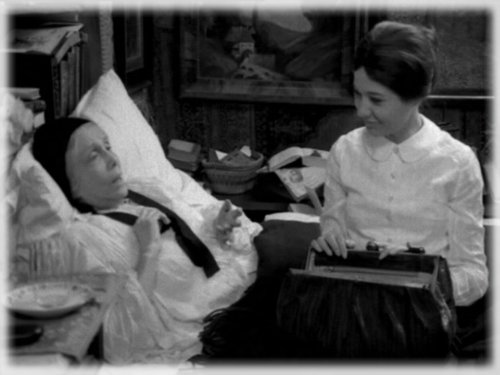Many Hungarians joined the Russian cause because they thought that in the long run, it would benefit their own country, which faced an uncertain future when the Austro-Hungarian Empire was dismantled by the peace settlements of 1919, and Hungary became an individual, self-governing nation. The question of course is, did it? Since Jancso shows the Reds in a none too sympathetic light, perhaps not. Many Russians were less than keen on Hungarian involvement; some Hungarians are told that they don’t want them fighting their war. In many ways, The Red and the White summarises and reinforces the often fraught relationship the two countries have endured over much of the twentieth century.
One could argue that Jancso films with a policy of detachment. The Reds and the Whites are never named and are often indistinguishable, there is little in the way of characterisation, and his main cinematographic preference is for long takes with very little camera movement, often from distance. It’s as if the director doesn’t want to get too close to his subjects or attempt to analyse or empathise with them. He prefers to depict events as they occur and have little more input beyond this. This approach allows him to be impartial and not sensationalise or over dramatise the numerous shocking acts of violence he films, such as massacres of entire towns, allowing enemies a few seconds head start to run before being picked off, and coldly shooting enemies right between the eyes indiscriminately. Despite much of this violence being committed by the Whites, Jancso affords some of the counter-revolutionaries a conscience and a degree of moral integrity. When one White soldier attempts to rape a woman in a small town, his officer orders him to be executed for his dishonour. This captures the peculiar mindset of men at war; that when faced with your enemies, anything goes. Yet those who are innocent and uninvolved should be treated with respect and dignity. It’s strange just to be able to turn on and off like that.
Where there is anything like a narrative, I suppose it exists as much as concentrating on a few Hungarian Reds trying to avoid the Whites and escape capture. The unlucky escapees commit suicide before being captured, whilst the fortunate either ambush the Whites, hide in lakes whilst they pass, or pretend to be wounded Whites at a nearby infirmary. The nurses explain that there are no “Reds or Whites here, only patients”, reinforcing that these are men with much in common, separated by ideology (though interestingly we never hear any indications of the ideologies of these forces or why they’re fighting). The Whites arrive and ask for the Reds and the Whites to be separated, though this coincides with a major fight back by the Reds, culminating in a glorious and sweeping shot from distance of the two armies marching towards each other (which cannot be told apart) at approximately 1 hour and 20 minutes into the film. This resolution is open ended, with no judgements of any kind, or any indication of how events might pan out. Jancso sees the whole futility of this exercise and closes with a march towards death, with the forces fighting for no other reason than to fight.
